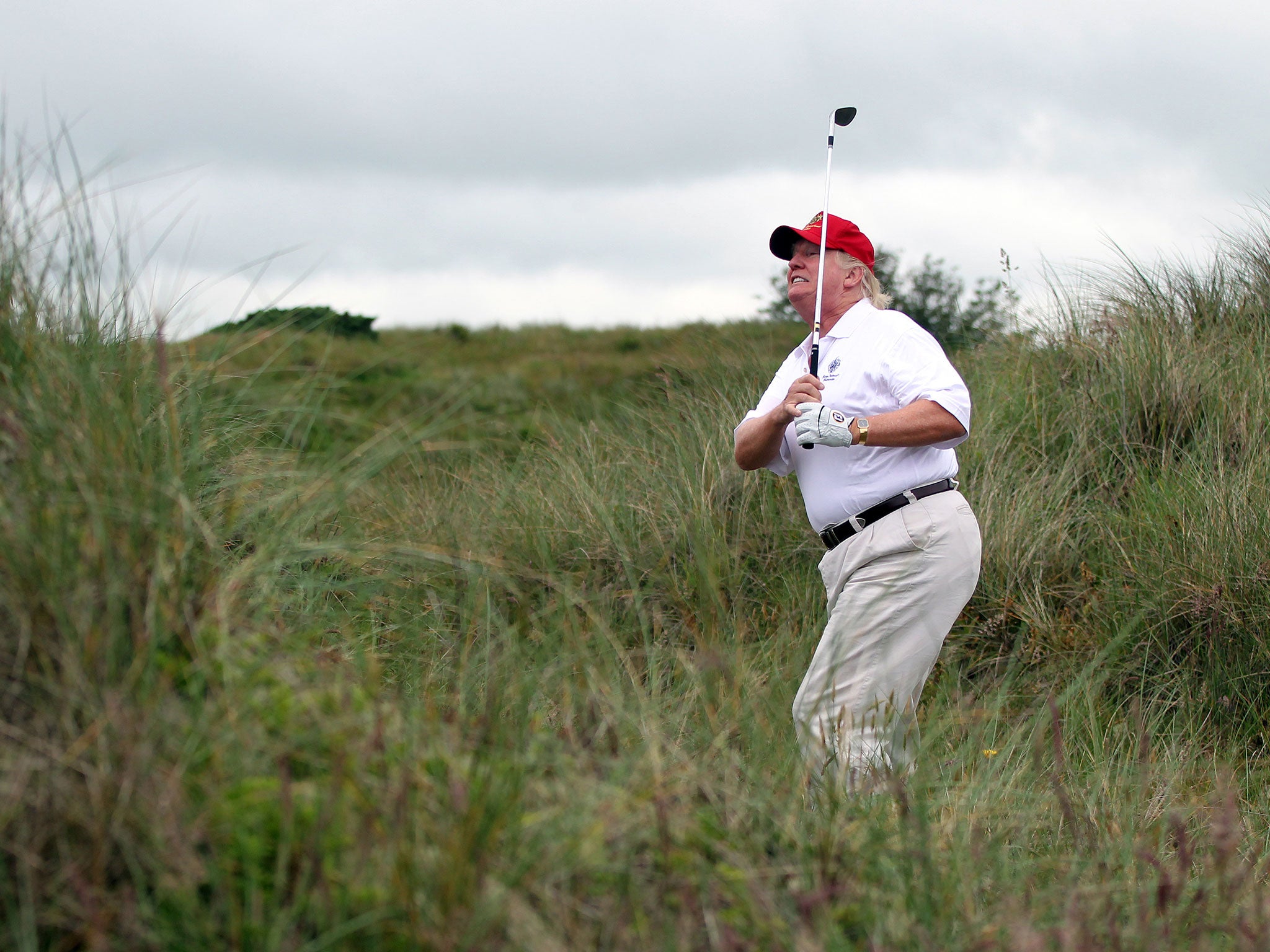Donald Trump calls global warming a hoax - until it threatens his golf course
The billionaire’s organisation has submitted a permit to build a sea wall at Trump International Golf Links Ireland, which cites rising sea levels from climate change as a threat

Your support helps us to tell the story
From reproductive rights to climate change to Big Tech, The Independent is on the ground when the story is developing. Whether it's investigating the financials of Elon Musk's pro-Trump PAC or producing our latest documentary, 'The A Word', which shines a light on the American women fighting for reproductive rights, we know how important it is to parse out the facts from the messaging.
At such a critical moment in US history, we need reporters on the ground. Your donation allows us to keep sending journalists to speak to both sides of the story.
The Independent is trusted by Americans across the entire political spectrum. And unlike many other quality news outlets, we choose not to lock Americans out of our reporting and analysis with paywalls. We believe quality journalism should be available to everyone, paid for by those who can afford it.
Your support makes all the difference.Donald Trump has mixed feelings about climate change.
In January 2014, he publicly wondered how the United States could be spending money to combat what, in his words, was a “global wraming hoax.” In October, when Trump was bitten by the autumnal chill, the Republican presidential candidate snarked on Twitter that he could use “a big fat dose of global warming.” He told The Washington Post editorial board in March that he is “not a great believer in man-made climate change.”
But when it came to protecting his own investments from global warming’s effects, Trump canned the screaming capital letters and jokes. Instead, Trump wants to curtail climate change with a wall.
The Trump International Golf Links Ireland, a golf course by the sea in Ireland’s County Clare, faces the Atlantic’s pounding waves and coastal erosion. As Politico reported Monday, the Trump Organization has submitted a permit to build a sea wall, which cites rising sea levels from climate change as a threat. Not just any wall will do — one plan called for a limestone barricade 20 meters wide, what Friends of the Irish Environment’s Tony Lowes described to CNBC as a “monster sea wall” in March.
As part of the approval process to build the sea wall, Trump International Golf Links filed an environmental-impact statement. It includes specific concern for erosion, beyond one governmental study that did not take into account sea-level rise from climate change, according to Politico.

“If the predictions of an increase in sea level rise as a result of global warming prove correct, however, it is likely that there will be a corresponding increase in coastal erosion rates not just in Doughmore Bay but around much of the coastline of Ireland,” the application notes. “In our view, it could reasonably be expected that the rate of sea level rise might become twice of that presently occurring.”
Environmentalists pounced on the apparent self-contradiction. Former congressman Bob Inglis, a Republican from South Carolina who supports conservative efforts to mitigate global warming, told Politico that the dissonance between Trump’s public stance and his business practice is “diabolical.”
“Donald Trump clearly cares more about the fate of his golf courses than the health of the millions of families already affected by the climate crisis,” said Adam Beitman of the Sierra Club to the Associated Press.
Republicans, according to a recent New York Times report, may be concerned about Trump’s lack of a clear stance regarding climate change, at least beyond the denials or jokes in his Twitter feed. “I think there is concern about where he stands because he hasn’t come out strongly one way or another,” one anonymous aide told the Times.
There is a scientific consensus that humans are causing the planet to warm. A 2009 review of more than 4,000 climate-science papers found that scientists faulted humans for global warming in 97 out of every 100 studies.
© The Washington Post
Join our commenting forum
Join thought-provoking conversations, follow other Independent readers and see their replies
Comments